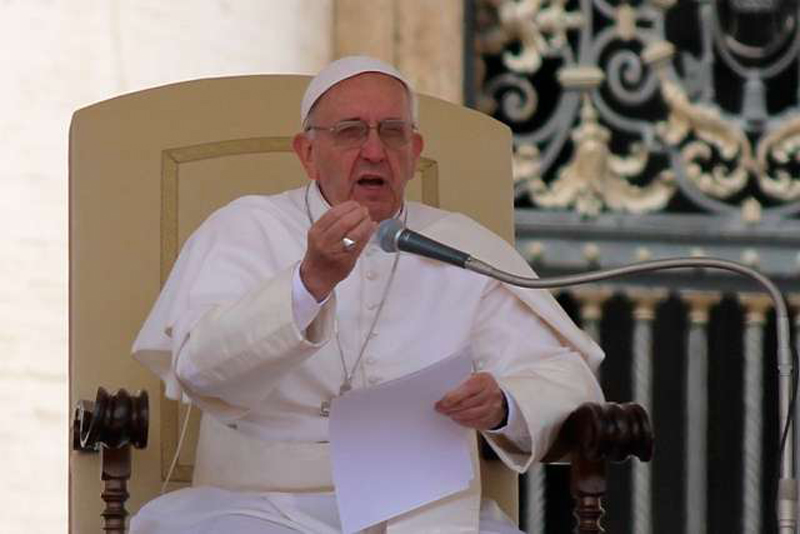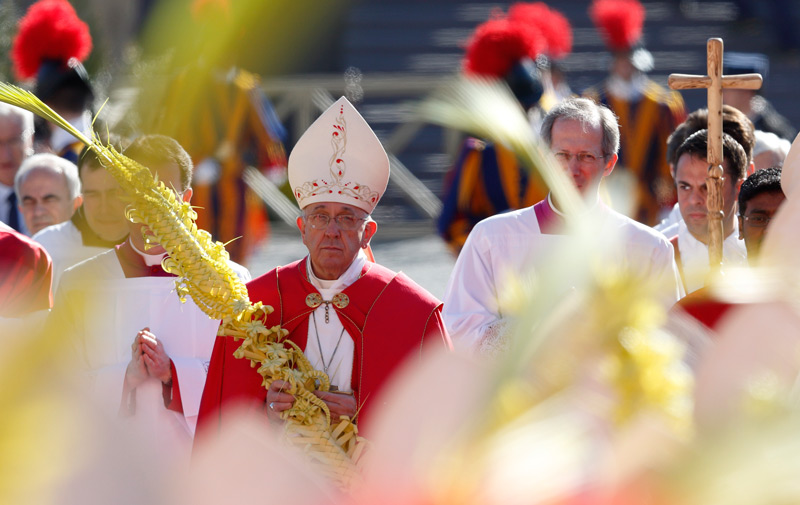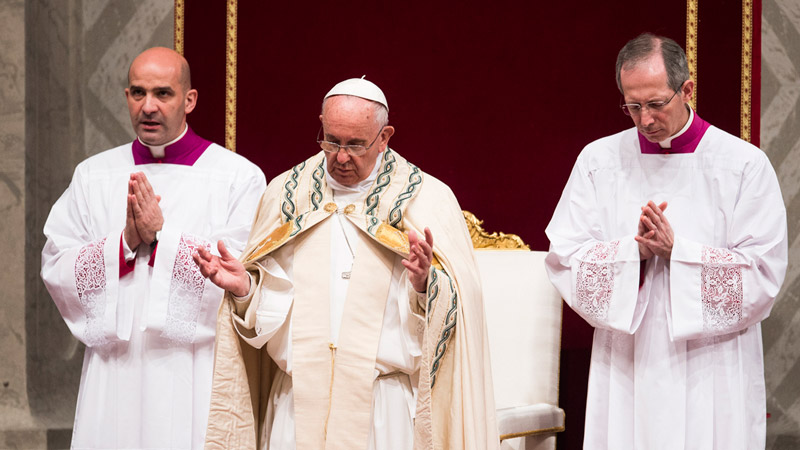
VATICAN CITY—On Wednesday, Pope Francis said the Church doesn’t exist for people without faults, but for sinners in need of God’s mercy — a point he often returns to — and lamented the fact that there are many Catholics who believe the opposite.
“We who are accustomed to experiencing the forgiveness of sins, perhaps too much like ‘a cheap market,’ we should at times remind ourselves of how much we cost the love of God,” the pope said Aug. 9.
“Jesus didn’t go to the Cross because he heals the sick, because he preaches charity or because he proclaims the beatitudes,” he said. Rather, “the Son of God goes to the Cross above all because he forgives sins, because he wants the total, definitive freedom of man’s heart.”
“He does not accept that the human being consumes their entire existence with this irremovable ‘tattoo,’ with the thought of not being able to be welcomed by the merciful heart of God.”
And this, Francis said, is how sinners are forgiven. Not only are they reassured at a psychological level, feeling free from a sense of guilt, but Jesus does more: “he offers the people who have erred the hope of a new life, a life marked by love.”
Pope Francis spoke to pilgrims in the Vatican’s Paul VI Hall for his weekly general audience, continuing his catechesis on hope.
He began by pointing to the Gospel reading from Luke in which, after Jesus forgives the sins of a woman who anoints his feet with oil, Simon the Pharisee asks “who is this, who even forgives sins?”
Jesus’ act of forgiving the woman’s sins was “a scandalous gesture,” the pontiff said, noting that to have a known sinner come into the house of Simon to anoint Jesus was startling, because at the time the mentality was “between the holy and the sinner, the pure and the impure, the separation had to be clear.”
“But the attitude of Jesus is different,” Pope Francis said, noting that from the beginning of his ministry Jesus embraced lepers, the sick and the marginalized.
“Such behavior was by no means normal, so much so that Jesus’ sympathy for the excluded, for the untouchables, will be one of the most disturbing things for his contemporaries,” he said, adding that “wherever there is a person suffering, Jesus cares for them, and that suffering becomes his own.”
Rather than following the stoic philosophers, who linked physical suffering to sin and believed such “punishment” had to be endured with heroism, Jesus shared in human pain, “and when he encounters it, from the depths of his being bursts that attitude which characterizes Christianity: mercy.”
Jesus shows compassion, but “literally: Jesus feels his insides quiver.” This is often referenced in the Gospels, where Christ incarnate “reveals the heart of God” and offers healing to those who suffer.
“It is for this reason that Jesus extends his hands to sinners,” Pope Francis said, noting that there are many people today living a life of error “because they can’t find anyone willing to look at them in a different way, with their eyes, or better, with the heart of God, which is hope.”
At times we forget that Jesus did not act with an easy love that comes “for a cheap price,” he said, adding that Jesus understands not only the physical pain of those who suffer, but also the internal pain of those who feel that they are bad people or that there is something essentially wrong with them because of their faults.
Pope Francis closed his address telling pilgrims that it would do them well to think about how “God did not choose people who have never done wrong as the first dough to form his Church.”
Rather, “the Church is a people of sinners who experience the mercy and forgiveness of God,” he said, adding that St. Peter understood the truth about himself when the cock crowed, instead of his generous works, “which swelled his chest, making him feel superior to others.”
The Church is not for the perfect, but for sinners, he said, adding in off-the-cuff remarks that he can think of “a lot of Catholics who think they are perfect and they despise others, (and) this is sad.”
“We are all poor sinners in need of God’s mercy, which has the strength to transform us and radiate hope to us every day,” Pope Francis said.
And to the people who understand this, “God gives the most beautiful mission in the world, which is to tell of his love for their brothers and sisters, and the announcement of a mercy that he does not deny to anyone.”
After greeting pilgrims from various countries around the world, Pope Francis closed his audience with an appeal for an end to violence in the world following an attack this week in Nigeria, in which a gunman entered a Church and opened fire, killing 11 and wounding several others.
He also pointed to an uptick in homicidal violence in the Central African Republic this week, directed against the Christian population.
“I wish that all forms of hatred and violence would cease, and that no more such shameful crimes be committed in places of worship, where faithful are gathered to pray,” he said, and led pilgrims in praying a Hail Mary for the people of Nigeria and the Central African Republic.
By Elise Harris / Catholic News Agency, EWTN News
Stephan Driscoll/CNA: Pope Francis speaks in St. Peter’s Square during a Wednesday general audience from May 2015.



